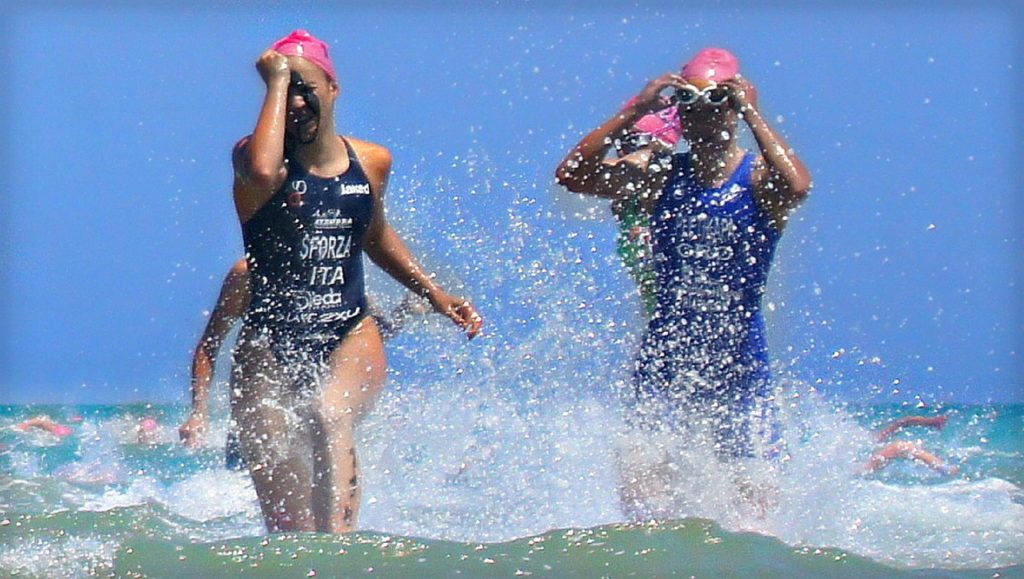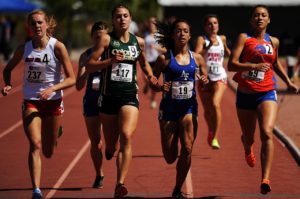- Calls to this hotline are currently being directed to Within Health, Fay or Eating Disorder Solutions
- Representatives are standing by 24/7 to help answer your questions
- All calls are confidential and HIPAA compliant
- There is no obligation or cost to call
- Eating Disorder Hope does not receive any commissions or fees dependent upon which provider you select
- Additional treatment providers are located on our directory or samhsa.gov
Female Athletes and Anorexia: When to Seek Help

Contributed by Canopy Cove
Female athletes are particularly vulnerable to developing an eating disorder more than females in the general population. While participating in athletics can be a great way to build self-esteem and promote positive wellbeing, the immense pressure to compete and to win can create an environment conducive for female athletes and anorexia to mix.
The risks of Female Athletes and Anorexia developing increases when the pressures of athletic competition are added to an existing cultural emphasis on thinness. [1, 2]
Risks to Female Athletes
- One study found that 35% of female athletes were at risk for anorexia nervosa. [1]
- Female athletes who compete in sports that tend to emphasize diet, appearance, size, and weight are at particular risk of developing an eating disorder such as anorexia. [1]
- Up to 62% of female athletes who are in weight class and aesthetic sports struggle with disordered eating such as anorexia. [1]
- Among female high school athletes in aesthetic sports, 41.5% reported disordered eating. Furthermore, they were eight times more likely to incur an injury than their non-disordered eating peers. [1]
- Female athletes have the same risks as the general population, but also additional risks related to sports participation. These risks include: [2, 4]
- Emphasis on leanness (for performance or aesthetic reasons)
- Uniforms that increase body and weight preoccupation
- Participating in judged versus refereed sports
- Participation in endurance sports such as track and field, running, swimming
- Participation in sports that focus on individual versus group/team performance
- Coaching that focuses on success/performance rather than on the athlete as a whole person
- Personality traits that make one susceptible to anorexia such as perfectionism and drive toward high-achievement can be exacerbated by sports participation
- Performance anxiety
- Negative self-appraisal of athletic achievement
- Identity solely based on participation in athletics
- Female athletes are at risk of developing what is known as the Female Athlete Triad. This is a term used to describe the three-fold condition of disordered eating, amenorrhea (or loss of menstrual cycle), and osteoporosis that commonly occurs in female athletes. Each of these conditions is a medical concern. Together they create serious health risks that may be life-threatening. There are many causes of the triad, but the pressure placed on young women to achieve or maintain a low body weight is often cited as an overarching force in development. [3, 4]
When to seek help
There are many warnings signs and symptoms of anorexia. However, below are some signs and symptoms of when a female athlete may need to seek help for anorexia: [4, 5]
- Dramatic weight loss
- Difficulties concentrating
- Sleep problems
 Performance anxiety, especially as it relates to appearance, body, weight, etc.
Performance anxiety, especially as it relates to appearance, body, weight, etc.- Preoccupation with weight, food, calories, fat grams, and dieting.
- Makes frequent comments about feeling “fat” or not performing/scoring as well due to weight, body, etc.
- Over trains or maintains an excessive, rigid exercise regime – despite weather, fatigue, illness, or injury
- Develops food rituals (e.g., eating foods in certain orders, excessive chewing, rearranging food on a plate)
- Avoids eating, denies hunger, not eating enough to fuel performance
- Feels ineffective, has negative self-appraisal of athletic achievement
- Stomach cramps, non-specific gastrointestinal complaints (constipation, acid reflux, etc.)
- Abnormal laboratory findings (anemia, low thyroid and hormone levels, low potassium, low blood cell counts, slow heart rate) or abnormal bone scan findings
- Dizziness, fainting/syncope, muscle weakness
- Menstrual irregularities—amenorrhea, irregular periods or only having a period while on hormonal contraceptives (this is not considered a “true” period)
- Dry skin, dry and brittle hair and/or nails, thinning of hair on the head, fine hair on body (lanugo), dental problems
- Poor wound/injury healing and/or impaired immune functioning
If these sign and symptoms are present, it is important to seek treatment. Treatment is ideally comprised of a multi-disciplinary team made up of mental health providers, medical providers, and dietitians who all specialize in treating female athletes with anorexia. [2]
Another factor to be considered in the treatment of female athletes is the role of coaches, trainers, and other athletic staff. These individuals work closely with athletes and are often highly trusted and respected. With proper training and education, they can support female athletes in their recovery. [2, 3, 4]
Sources:
- National Eating Disorder Association. Statistics and Research on Eating Disorders. Retrieved from https://www.nationaleatingdisorders.org/statistics-research-eating-disorders on November 27, 2018.
- Thompson, R. A., & Sherman, R. T. (2010). Eating disorders in sport. New York: Routledge.
- Bernstein, S.J. (2008). Starving to Win: An Exploration of Eating Disorders in Female Athletes. Columbia University Graduate Student Journal of Psychology, 10, 64-69.
- National Eating Disorder Association. Eating Disorders and Athletes. Retrieved from https://www.nationaleatingdisorders.org/eating-disorders-athletes on November 27, 2018.
- National Eating Disorder Association. Learn: Anorexia Nervosa. Retrieved from https://www.nationaleatingdisorders.org/learn/by-eating-disorder/anorexia on November 27, 2018.
About Our Sponsor:
Canopy Cove Eating Disorder Treatment Center is a leading residential Eating Disorder Treatment Center with 25 years’ experience treating adults and teens who are seeking lasting recovery from Anorexia, Bulimia, Binge Eating Disorder and other related eating disorders.
We are a licensed rehabilitative provider accredited by the Commission on Accreditation of Rehabilitation Facilities. Trusted and recommended by doctors and therapists throughout the country, our program provides clients with clinical excellence and compassionate care.
As one of the most experienced Eating Disorder Centers in the nation, we’ve developed a highly effective program that incorporates solid evidence-based therapies which have been shown to increase recovery rates.
- Each person we treat receives a customized treatment plan tailored to their specific needs.
- We increase recovery rates by simultaneously treating co-existing conditions such as anxiety, depression. (We also accept clients with an Eating Disorder and co-existing Diabetes).
- We provide family education and family therapy throughout the recovery process. (Offered by phone for out of town families).
Our Christian-based eating disorder treatment program warmly accepts all clients from various belief systems.
Get help now. Call 855-338-8620.
www.canopycove.com
info@CanopyCove.com
About the Author:
 Chelsea Fielder-Jenks is a Licensed Professional Counselor in private practice in Austin, Texas. Chelsea works with individuals, families, and groups primarily from a Cognitive Behavioral Therapy (CBT) and Dialectical Behavior Therapy (DBT) framework.
Chelsea Fielder-Jenks is a Licensed Professional Counselor in private practice in Austin, Texas. Chelsea works with individuals, families, and groups primarily from a Cognitive Behavioral Therapy (CBT) and Dialectical Behavior Therapy (DBT) framework.
She has extensive experience working with adolescents, families, and adults who struggle with eating, substance use, and various co-occurring mental health disorders. You can learn more about Chelsea and her private practice at ThriveCounselingAustin.com.
The opinions and views of our guest contributors are shared to provide a broad perspective of eating disorders. These are not necessarily the views of Eating Disorder Hope, but an effort to offer a discussion of various issues by different concerned individuals.
We at Eating Disorder Hope understand that eating disorders result from a combination of environmental and genetic factors. If you or a loved one are suffering from an eating disorder, please know that there is hope for you, and seek immediate professional help.
Published on November 28, 2018.
Reviewed & Approved on November 28, 2018, by Jacquelyn Ekern MS, LPC
Published on EatingDisorderHope.com

The EatingDisorderHope.com editorial team comprises experienced writers, editors, and medical reviewers specializing in eating disorders, treatment, and mental and behavioral health.

